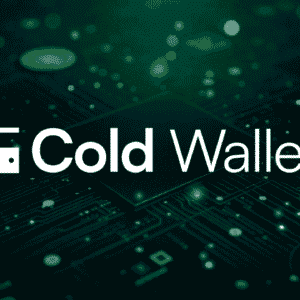As blockchain adoption accelerates across industries, the role of tokens—be it utility, governance, or asset-backed—has become central to how decentralized ecosystems function and scale. However, launching a token is no longer just about deploying smart contracts or listing on exchanges. In today’s competitive Web3 environment, sustainability, scalability, and long-term value creation are key to ensuring project longevity.
This is where professional token development services come into play. These services provide startups, enterprises, and decentralized projects with the technical expertise, strategic planning, and compliance infrastructure required to build not just a token—but an entire value ecosystem around it.
1. Beyond Code: The Evolution of Token Development Services
In the early days of ICOs (Initial Coin Offerings), token creation was often a basic, one-dimensional task—frequently reduced to copying open-source smart contract templates. However, as the industry matured and stakeholders demanded more accountability, the need for end-to-end services became evident.
Modern token development services go far beyond simple contract deployment. They typically include:
-
Tokenomics design and modeling
-
Regulatory and compliance consulting
-
Smart contract security auditing
-
Multi-chain compatibility
-
Scalable infrastructure setup (gas optimization, cross-chain bridging)
-
Post-launch support including liquidity management and governance integration
These services don’t just help a project launch—they help it grow in a structured, secure, and sustainable way.
2. Crafting Tokenomics for Long-Term Value
At the heart of any successful token lies well-crafted tokenomics. Tokenomics is the blueprint that governs how a token works within its ecosystem—its utility, demand drivers, supply constraints, and incentives.
Professional token developers ensure long-term value by:
a. Designing Sustainable Supply Models
A token’s supply mechanism—fixed, inflationary, or deflationary—determines its scarcity and long-term valuation potential. For instance:
-
Ethereum uses a burn mechanism (EIP-1559) to reduce token supply, helping counter inflation.
-
Binance Coin (BNB) implements quarterly burns, removing a portion of tokens to increase scarcity and price stability.
Professional token developers model these dynamics using simulations and market research to balance short-term incentives with long-term sustainability.
b. Creating Real Utility and Demand
Many tokens fail because they lack real use cases. Developers help projects integrate their tokens into essential functions such as:
-
Access control (premium services, content)
-
Fee payments
-
Governance and voting
-
Staking and liquidity provisioning
By embedding the token in high-frequency interactions, they increase its velocity and demand.
c. Incentivizing Early and Long-Term Participation
Developers design vesting schedules, staking rewards, and DAO incentives to retain users and prevent speculative dumping post-launch. This aligns all stakeholders—investors, users, and founders—toward long-term growth.
3. Building for Scale: Technical Scalability Through Architecture
Even with perfect tokenomics, a project can fail if its technical architecture doesn’t scale with user growth. Token development services play a key role in ensuring:
a. Smart Contract Optimization
Unoptimized contracts lead to high gas fees and network congestion. Development teams reduce gas usage by minimizing storage reads/writes and reusing logic, making the token more usable on-chain. For instance, ERC-721A significantly lowered minting costs for NFT collections.
b. Cross-Chain Compatibility
As multi-chain ecosystems become the norm, tokens need to be operable across chains like Ethereum, Solana, BNB Chain, and Layer 2s like Arbitrum and Optimism. Professional developers:
-
Build cross-chain bridges or wrappers (e.g., Wrapped Bitcoin on Ethereum)
-
Leverage tools like Polkadot parachains or Cosmos IBC for interoperability
This enables broader market access, lower transaction fees, and greater liquidity—key factors for scalability.
c. Layer-2 Integration and Rollups
To scale transaction throughput, developers integrate Layer-2 solutions such as:
-
Optimistic Rollups (e.g., Arbitrum, Optimism)
-
ZK-Rollups (e.g., zkSync, StarkNet)
This reduces network congestion while maintaining security, allowing dApps and tokens to onboard thousands of users without latency or high fees.
4. Ensuring Security and Compliance
With billions lost to smart contract exploits and regulatory crackdowns, security and legal compliance are non-negotiable.
a. Smart Contract Audits
Reputable token development services conduct thorough code audits—either internally or via third parties like CertiK or Hacken. These audits detect vulnerabilities such as:
-
Reentrancy attacks
-
Integer overflows
-
Access control flaws
A well-audited token contract builds investor trust and ensures safer operations.
b. Regulatory Navigation
Different jurisdictions classify tokens differently—security, utility, or payment tokens. Developers work with legal teams to:
-
Draft whitepapers and token classifications
-
Register tokens with regulators if required (e.g., SEC, ESMA)
-
Implement KYC/AML processes
Projects like Securitize have successfully launched tokenized securities with full compliance, showing the value of legal-savvy development partners.
5. Modular Ecosystem Development
Tokens don’t exist in a vacuum—they’re part of broader decentralized applications. Token development services often assist in building out complementary infrastructure such as:
-
DAOs (Decentralized Autonomous Organizations)
-
NFT integrations
-
DeFi protocols (AMMs, lending pools)
-
Custom wallets and dashboards
This modular approach allows for future feature integrations without needing complete rewrites, making the project future-proof.
6. Case Studies: Real-World Examples
a. Polygon (MATIC)
Originally a Layer-2 solution, Polygon invested in high-quality development services to launch its token with optimized staking, bridge features, and scalable architecture. It now powers thousands of dApps and consistently ranks among the top 10 tokens by market cap.
b. Aave (AAVE)
By ensuring robust governance tokenomics, liquidity mining strategies, and safety modules (insurance for protocol failures), Aave became one of the most trusted DeFi platforms. Its success is a testament to strategic development.
c. Helium (HNT)
Helium built token incentives into real-world wireless infrastructure. Their token development included mechanisms for proof-of-coverage mining, creating real-world value tied to network expansion—a unique example of physical-digital tokenomics done right.
7. Post-Launch Support: Sustaining Long-Term Growth
Professional token development doesn’t stop at launch. Continuous improvement is key.
a. Upgradeable Contracts
Using proxy patterns like OpenZeppelin’s Transparent Proxy, developers can upgrade contracts without disrupting token balances or dApp functionalities.
b. Community and Governance Tooling
Development teams help launch governance portals, proposal submission tools, and forums—crucial for DAO management and stakeholder engagement.
c. Analytics and Monitoring
Tools like Dune Analytics or The Graph are integrated to offer real-time insights into token usage, wallet distribution, and dApp interactions. This data informs future upgrades and community decisions.
8. The ROI of Professional Token Development
While some projects try to cut costs by hiring freelancers or using prebuilt templates, professional token development services offer superior ROI:
-
Reduced time-to-market through streamlined pipelines
-
Fewer security risks through proper auditing
-
Higher investor confidence via clean, well-architected code
-
Improved user retention through functional, low-friction systems
-
Regulatory readiness to avoid future legal troubles
When you view token development as a long-term investment—not a one-time expense—the value of expert services becomes undeniable.
Conclusion: Future-Proofing Your Token Project
The Web3 space is dynamic, competitive, and rapidly evolving. In such an environment, the token itself must evolve beyond a speculative asset to become a core engine of value creation, governance, and utility. This transformation is only possible when tokens are designed and developed with long-term vision and technical rigor. Professional token development services provide the foundation to achieve this vision. From optimized architecture and smart contract security to robust tokenomics and multi-chain scalability, these services are indispensable for projects aiming to stand the test of time. For startups, DAOs, and enterprises entering the blockchain space in 2025 and beyond, partnering with a skilled token development team isn’t just a best practice—it’s a strategic necessity.


